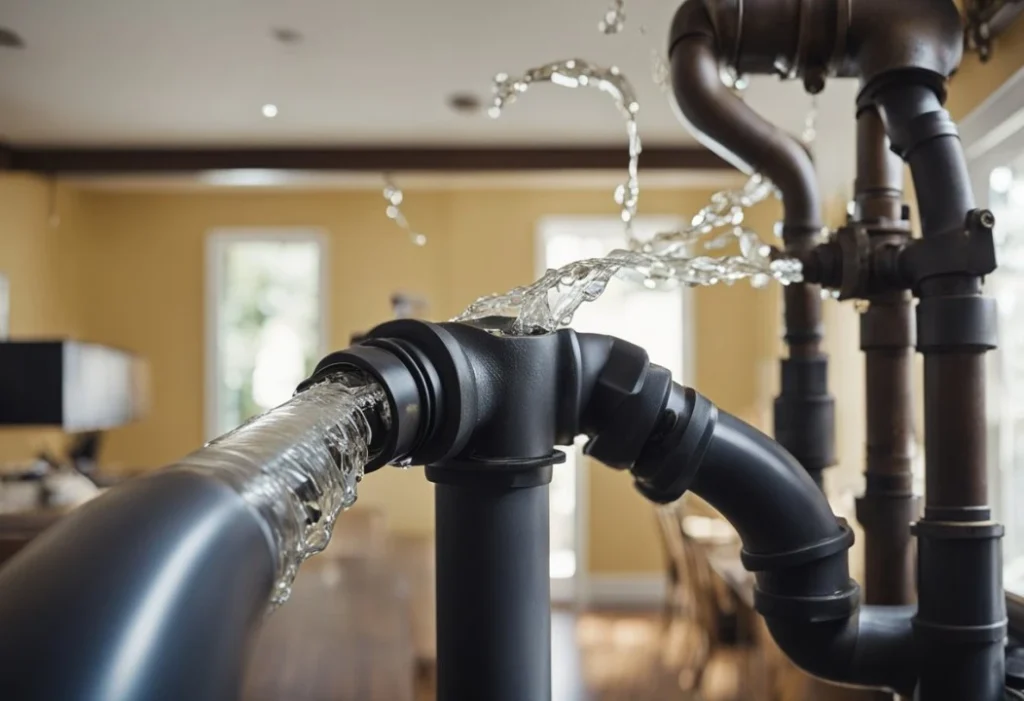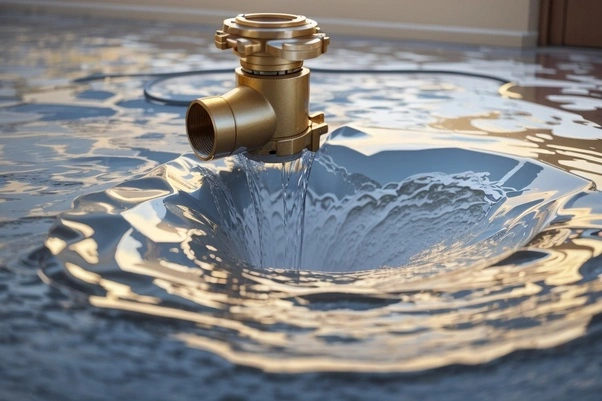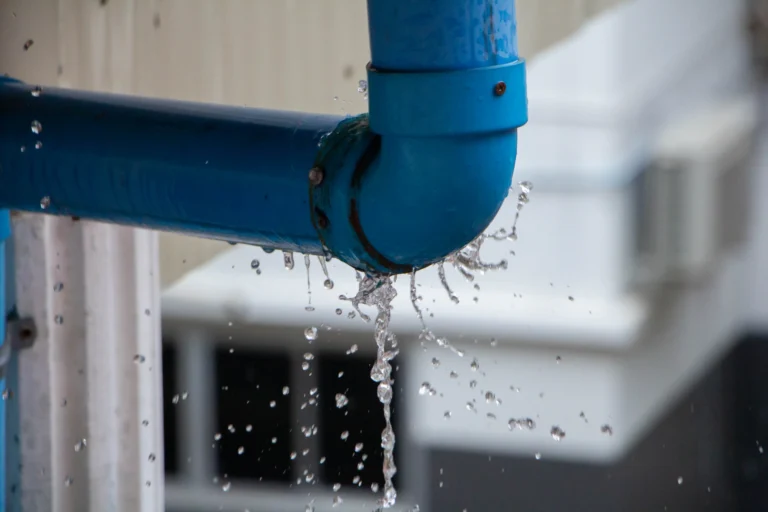Water leaks can throw an unexpected and stressful curveball into our lives. Whether they’re the subtle drips behind the walls or the more dramatic gush that floods a space, the aftermath can be devastating. In these moments, understanding the intricate process of filing an insurance claim is crucial to mitigate the financial strain and get back on your feet.
Navigating the complexities of water leak insurance claims can be daunting, to say the least. However, armed with the right knowledge, you can turn the tide in your favour and ensure a smooth and successful claim process. This comprehensive guide dives deep into the waters of water leak claims, equipping you with the steps to take from when a leak is detected to when your claim is settled.
Detecting the Drip: Know the Signs of a Water Leak
Before entering the claim process, you must recognize the signs of a water leak in your home. Some indicators are more subtle than others, but early detection can prevent further damage and expedite the claim process.
Common Signs of Water Leaks
- Unexplained increases in your water bill
- Sudden changes in water pressure
- When no appliances are in operation, the sound of flowing water
- The presence of mold or mildew
- Stains on walls or ceilings
Timely recognition demands vigilance. Regularly checking for these signs can save you time and money in the long run.
Reacting to the Flood: Immediate Steps to Follow
In the event of a water leak, swift action is your ally. Taking the right steps can minimize the damage and build a strong foundation for your claim.
First Actions to Take
- Shut off the water source immediately.
- Move valuable or easily damaged items to a dry location.
- Begin the drying process as soon as possible with fans or dehumidifiers.
These actions can protect your property and serve as evidence of your quick and responsible reaction to the incident.

Documenting the Drip: Essential Recordkeeping
Paper trails are pivotal in insurance claims. The better you document the process, the stronger your claim will be.
Recordkeeping Essentials
- Capture the scene with photos and videos, including the initial damage and any subsequent changes.
- Keep a log of all communication with plumbers, insurers, and relevant contractors.
- Save any receipts or invoices for expenses related to the leak.
A thorough record provides an accurate account of the incident, lending credibility to your claim.
Uncovering Your Policy Wording: The Importance of Understanding Your Coverage
Policies vary when it comes to water damage coverage. Understanding the specifics of your insurance provisions is a game-changer.
Types of Coverage to Look For
- Dwelling coverage typically covers the structure of your home.
- Personal property protection may cover the contents of your home.
- Additional living expenses coverage can cover living costs if your home is uninhabitable.
Familiarize yourself with policy inclusions and exclusions to avoid surprises during the claim process.
Diving into the Claim Process: Notifying Your Insurance Company
Timely notification can speed up the process. It is imperative that you get in touch with your insurance provider right away.
What Your Notification Should Include
- A detailed description of the water leak and the damage it caused.
- The time and date that you found the leak.
Make your initial communication clear and concise, including key details that can get the ball rolling on your claim.
Meeting with the Adjuster: Inspection and Next Steps
The role of the insurance adjuster cannot be understated. Their evaluation can significantly impact how your claim is handled.
Preparing for the Adjuster’s Visit
- Ensure the damaged areas are accessible and clearly visible.
- Be present during the inspection to answer questions and offer context.
- Provide any additional information or documentation the adjuster requests.
An essential part of the procedure is the inspection. Collaboration and transparency during this phase are key.
Securing Your Settlement: Ensuring Fair Compensation
It’s all too common for insurers to undervalue claims. Ensuring a fair settlement is about persistence and being thorough.
Supplementing Your Claim with Evidence
- Provide additional documentation or estimates if the initial offer doesn’t cover all damages.
- Do not hesitate to negotiate for a better settlement if you believe it’s warranted.
Your claim represents the entirety of your loss. Never accept less than you have a right to.

Sealing the Deal: Finalizing Your Claim
Once your claim is approved, the final steps are about wrapping things up.
Finalizing Your Claim: What to Expect
- Sign any necessary paperwork and agreement forms.
- Receive your settlement, which may consist of one or more checks.
Cross your T’s and dot your I’s as you close out the process, and keep a record of all finalized documentation.
Proactive Prevention: Guarding Against Future Leaks
Prevention is insurance in itself. Once your claim is settled, implementing measures to safeguard against future leaks is a prudent step.
Preventative Home Maintenance
- Regularly inspecting the home’s plumbing and appliances.
- Maintaining the health of your pipes through proper care and temperature control.
A leak-free home is a stress-free home. Proactive maintenance keeps potential claims at bay.
Flowing into the Future: Recommendations and Final Thoughts
Water leaks may be unforeseen, but the knowledge you gain from navigating the claim process is invaluable for any homeowner.
Recommendations for the Future
- Consider enhancing your policy’s water damage coverage, if necessary.
- Remain well-informed about your rights and responsibilities as a policyholder.
Continue refining your insurance knowledge and always be prepared for the unexpected.
FAQs
How long do I have to file a water leak insurance claim?
As quickly as possible, you should submit your claim. Most policies have a deadline for filing a claim, typically within a few days of discovering the damage.
Will my insurance rates go up if I file a water leak claim?
Filing a claim can affect your rates, depending on your insurer’s policies and claims frequency. It’s important to weigh the cost of your deductible against potential rate increases to determine if filing a claim is financially beneficial.
What happens if my water leak claim is denied?
If your claim is denied, you can ask for an explanation. Sometimes, issues can be resolved with additional information or by escalating your case with your insurance provider. If you believe the denial is unjust, you may consider seeking legal advice or mediation.
Can I use any contractor I want to fix the water damage?
It’s typically up to you to choose the contractor for repairs, but some insurance companies have lists of preferred providers or might require you to get estimates from multiple contractors. Check your policy for any such requirements.
Should I repair the water damage before the insurance company inspects it?
It’s best to take all necessary measures to prevent further damage, such as turning off water sources or making minimal repairs. Document these steps and the state of the damage before more comprehensive repairs are made.
What’s the average timeline for settling a water leak insurance claim?
The timeline varies depending on the complexity of your claim and the responsiveness of all parties involved. In general, claims are settled within a few weeks to a few months, but more severe or contested cases can take longer.
